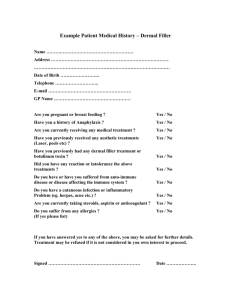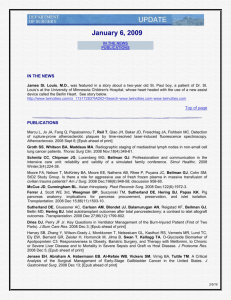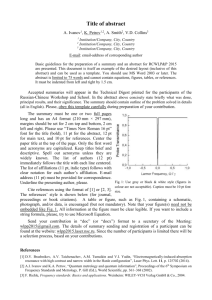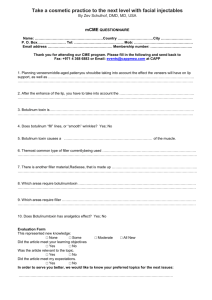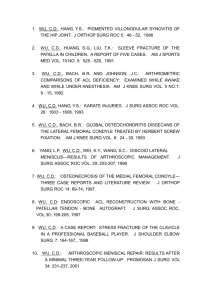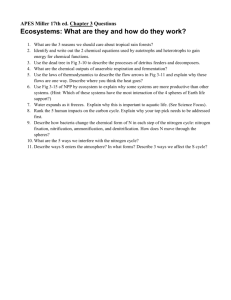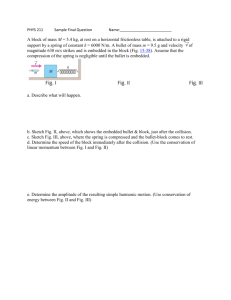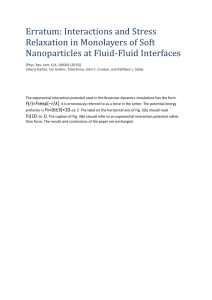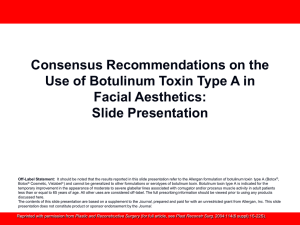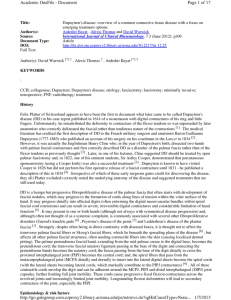Long Lasting Results with Hydroxyapatite facial filler
advertisement
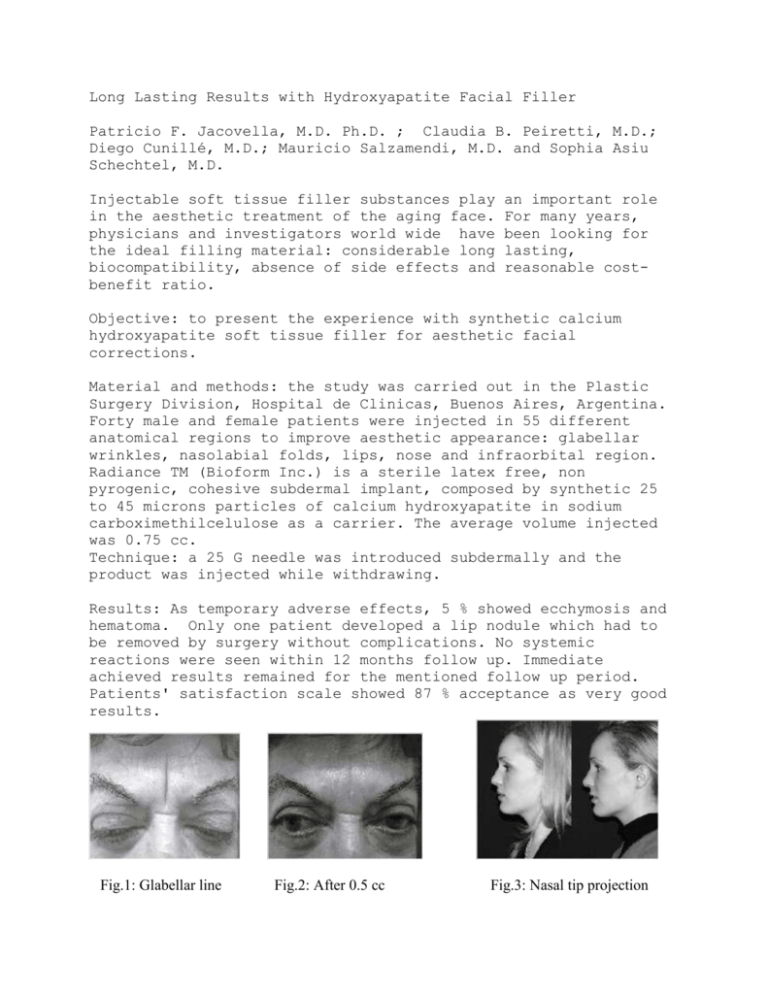
Long Lasting Results with Hydroxyapatite Facial Filler Patricio F. Jacovella, M.D. Ph.D. ; Claudia B. Peiretti, M.D.; Diego Cunillé, M.D.; Mauricio Salzamendi, M.D. and Sophia Asiu Schechtel, M.D. Injectable soft tissue filler substances play in the aesthetic treatment of the aging face. physicians and investigators world wide have the ideal filling material: considerable long biocompatibility, absence of side effects and benefit ratio. an important role For many years, been looking for lasting, reasonable cost- Objective: to present the experience with synthetic calcium hydroxyapatite soft tissue filler for aesthetic facial corrections. Material and methods: the study was carried out in the Plastic Surgery Division, Hospital de Clinicas, Buenos Aires, Argentina. Forty male and female patients were injected in 55 different anatomical regions to improve aesthetic appearance: glabellar wrinkles, nasolabial folds, lips, nose and infraorbital region. Radiance TM (Bioform Inc.) is a sterile latex free, non pyrogenic, cohesive subdermal implant, composed by synthetic 25 to 45 microns particles of calcium hydroxyapatite in sodium carboximethilcelulose as a carrier. The average volume injected was 0.75 cc. Technique: a 25 G needle was introduced subdermally and the product was injected while withdrawing. Results: As temporary adverse effects, 5 % showed ecchymosis and hematoma. Only one patient developed a lip nodule which had to be removed by surgery without complications. No systemic reactions were seen within 12 months follow up. Immediate achieved results remained for the mentioned follow up period. Patients' satisfaction scale showed 87 % acceptance as very good results. Fig.1: Glabellar line Fig.2: After 0.5 cc Fig.3: Nasal tip projection Fig.4: NL folds Fig.6: Lips pre Fig.5: 0.5 cc/ each side Fig.7: 1cc/ each lip Discussion: There is a big quantity of injectable filling materials in the aesthetic plastic Surgery arena.1,2 Temporary filling materials like autologous fat 3 and bovine collagen, present some disadvantages: short lasting time (3 to 6 months) for both; previous skin testing for collagen and two procedures ( to obtain and inject) for fat. Only hyaluronic acid could be preferred as a good temporary filler despite of the 6 months lasting time.2 Permanent fillers such as polymethilmetacrilate and dimethilpolixiloxane in particles 4,5, have been used for augmentation purposes in non surgical facial rejuvenation. The biggest disadvantage of the mentioned products is that they last forever and if the desired results are not achieved, it is difficult if not impossible to remove them. Due to reported side effects like granulomas, migration and systemic reactions, liquid silicone injections should not be allowed.6 Histological studies published by Probeck 7 and Pettis 8 have verified that the carboximetilcelulose as a carrier is completely absorbed after 12 months and that the particles remain surrounded by connective tissue. Hidroxyapatite particles have been used in urology for incontinence treatment with good results.9 Most of the main desirable properties for a filling material have been achieved with this product. Despite a larger number of patients and a longer follow up is necessary, it can be considered a very good option as a soft tissue long lasting filler. Bibliography 1. Spira M. and Rosen T. Injectable soft tissue substitutes. Clin. Plast Surg, 1993,20:181-188. 2. Rohrich R, Rios JL and Fagien S: Role of new fillers in facial rejuvenation: a caution outlook. Plast Reconstr Surg, 112: 18991902, 2003. 3. Chajchir A. and Benzaquen I.: Fat grafting inyection for soft tissue augmentation , Plast. Rectonstr. Surg 1984,84: 921-934. 4. Lemperle G., Romano J J and Busso, M. Soft tissue augmentation with Artecoll: 10 - year history, indications, techniques and complications. Dermatol. Surg., 2003,29: 573. 5. Ersek R.A. More on Bioplastique. Aesthetic Plast Surg ., 2000,24: 461. 6. Rohrich R and Potter J K : Liquid injectable silicone: is there a role as a cosmetic soft-tissue filler ? Plast Reconstr Surg,113: 1239-1241, 2004. 7. Probeck HP, and Rothstein S S. Histologic observation of soft tissue responses to imported multifaceted particles and discs of hydroxyapatite. J. Oral Maxillofacial Surg. 1989, 42:143-149. 8. Pettis G, Kaban L, and Glowacki J: Tissue response to composite ceramic hidroxyapatite -demineralized bone implant. J. Oral Maxillofacial Surg. 1990,48: 1068-1074. 9. Mayer R, Lightfoot M and Jung T: Preliminar evaluation of calcium hidroxyapatite as a transurethral bulking agent for stress urinary incontinence. Urology, 2001, 57: 434-438.
